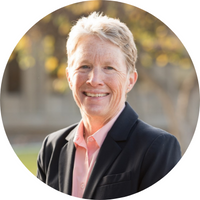
Mistaken as a weakness, being vulnerable in the workplace leads to authenticity and meaningful connection. Great leaders recognize the importance of vulnerability as a powerful tool. Leaders who tap into their vulnerability and express it gain support from those they lead while also empowering and inspiring them.
Contrary to popular belief, being vulnerable is not opening up and sharing your personal thoughts, life story, and darkest fears. Instead, it is the courage to be your authentic self by understanding where your strengths and weaknesses lie, and being honest about them with yourself and your team.
Expressing vulnerable leadership is an ongoing process. It needs to be practiced. You can demonstrate vulnerability by being open to criticism, showing that you care, asking for help, taking responsibility for your mistakes, and being transparent with your team.
Practicing vulnerability is a great skill and leaders should take the time to learn how and when to use it to empower those they lead. Embracing vulnerability is one of the most courageous and transformative decisions a manager can make.

Allison Campbell, PhD, was the Associate Laboratory Director for Coastal and Marine Sciences at Pacific Northwest National Laboratory (PNNL), focusing on complex coastal and marine processes and the nexus of marine-related renewable energy and human interaction.
Prior to this role, Dr. Campbell launched and led the Earth and Biological Sciences Directorate (EBSD). During that time, she expanded the EBSD research portfolio, hired scientific leadership, and maintained operational excellence.
She also served for more than 10 years as the Director of EMSL, the Environmental Molecular Sciences Laboratory, a DOE Office of Science user facility located at PNNL.
Dr. Campbell is nationally recognized for her research in biomaterials. She is credited with co-inventing a bio-inspired process to "grow," from the molecular level, a bioactive calcium phosphate layer onto the surfaces of artificial orthopedic implants. She is also recognized for her work in understanding the role of proteins in biomineralization.
In 2016, Dr. Campbell was elected by members to the three-year presidential succession of the American Chemical Society—the world's largest scientific society. She also served on the board of directors during that time.
In 2013, she was elected a Fellow of the American Association for the Advancement of Science and elected to the Washington State Academy of Sciences (WSAS). In 2020, she was elected to the Board as WSAS.
Dr. Campbell earned her PhD in physical chemistry from the University of Buffalo, and a BA in chemistry from Gettysburg College in Pennsylvania.
The opinions expressed in this article are the author's own and do not necessarily reflect the view of their employer or the American Chemical Society.











